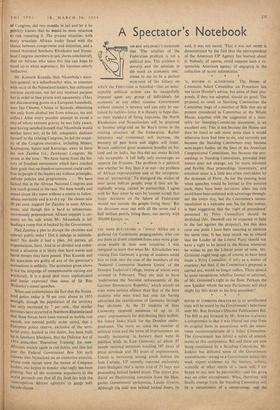'0, REFORM IT ALTOGETHER.' The House of Commons Select Committee
on Procedure has not taken Hamlet's advice, but some of their pro- posals, if they are adopted, should do good. The proposal to remit to Standing Committees the Committee stage of a number of Bills that are at present considered in Committee of the Whole House, together with the suggestion of a time- table for Standing-Commiaee discussion, is an excellent one. This is not because the House can then be freed to talk more sense than it would otherwise have had time to do, and certainly not because the Standing Committees may become semi-expert bodies on the lines of the American Congressional Committees, but because the pro- ceedings in Standing Committees, provided their nature does not change, are far more informal and flexible than proceedings 'downstairs,' and common sense is a little less often overridden by the demands of Party. As for the evening hour when speeches would be limited to five minutes each, there have been occasions when this rule could have been enforced with advantage through- out the entire day, but the Committee's recom- mendation is a welcome one. So, for that matter, is their suggestion that the 'right of precedence' possessed by Privy Councillors should be abolished (Mr. Shinwell can be expected to fight to the last against the proposal), but this does raise one point 1 have been meaning to mention for some time. It has long struck me as absurd that the Leader of the Liberal Party should not have a right to be heard in the House whenever he wishes to put the Liberal point of view. Mr. Grimond ought long ago, of course, to have been made a Privy Councillor, if only as a matter of courtesy; but that, if the Committee's proposal is carried out, would no longer suffice. There should be some recognition, whether formal or informal, of Mr. Grimond's right to the floor. Perhaps the new Speaker whom the new Parliament will elect might lay this down as his first precedent?


































 Previous page
Previous page